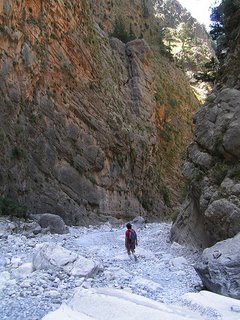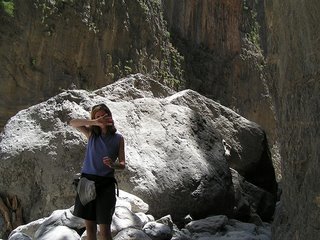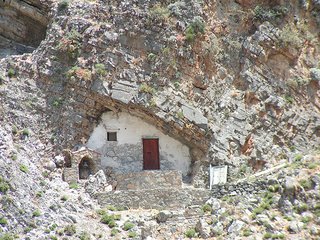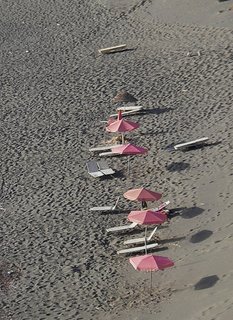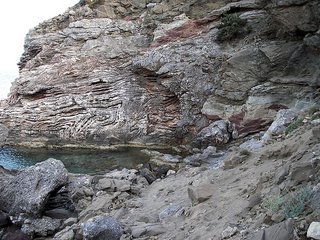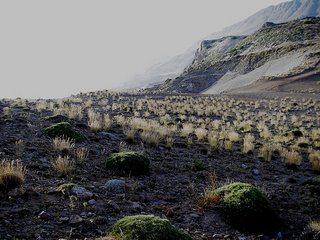Blogger Declares Slowdown, Cites Working Conditions
I don't understand how anyone in their right mind can be willing to maintain a blog for an extended period of time. Numerous people have told me I should blog. They only say that because they think I could write good blog posts. I agree that I could come up with some good material; I just wouldn't be willing to carve the requisite enormous chunk out of my life to devote to it. This would have been a great blog if you had kept it going over the long term, but I'm sure you're better off spending that time living.
Thus my son John, commenting on his brother Chris' decision to terminate his short-lived but excellent blog. Well, I've never claimed to be in my right mind, but at the moment I don't think blogging is helping put me there.
It's an issue I've thought about many times. This blog is my creative outlet, and creative inspiration waxes and wanes. My creativity has been in retreat for a number of months, as you know if you've been stopping here regularly: I've posted less frequently, and less of what I've posted has been fiction or creative essays, more has been filler.
The decline has accompanied a period of tremendous turmoil and reassessment in my life. For reasons explained in this post from back in January, I've been preoccupied with taking toddling steps toward necessary development in my psyche. It's going very well; at a rather late date, I'm leaving behind bad old behavior patterns, benighted ways of thinking, and learning to turn the love that I feel into action that others can feel. It's been, it is, a painful and sometimes exhausting surge of growth, and whether it can heal past wounds remains to be seen. It's also not something I want to set before the public on a step-by-step basis, and it's a process that requires all my resources. At this stage, at least, it doesn't leave me any emotional energy to spare. Plus, I work all day banging at the same keyboard I post at; coming here to do this for an hour or more each morning, going to bed wondering what I'm going to post about the next day, has turned into much more of a self-imposed obligation (to myself and my readers) than a solace or a self-expression.
I would hate to stop this blog and I'm not doing that, but I need to let up on myself for a while. In the absence of creative inspiration, there's no reason for me to go searching the news every day for cute tidbits about which to share my tart and witty observations. There are plenty of people who do that much better than I would, and who know and care much more than I do about public issues and popular culture. Better for me to grab an hour in which to sit looking at the garden and sipping rooibos tea, than to get worked up about how to describe the cultural catastrophe of the minor-league baseball game I went to last night.
As a friend of mine put it after reading a blog for the first time, "It's like the thoughts that go through my head every morning on the way to the subway, except I'd never think of writing them down for the whole world to read."
This is all a long way of saying that I'm going to slow down my posting for at least a couple of weeks, probably more. If anything comes into my mind I'll write it, and if not, I won't strain myself looking for a placeholder. This will reduce my readership, but I hope that you'll still stop by now and then to see if anything's up. If I start posting more again, I hope you'll return in full force. I've never understood the blogosphere's obsession with readership statistics anyway; it seems to me that this ought to be the last refuge for unquantifiable value. (I once thought the world of books was that, but it turned out not to be.)
I'm thinking about reducing to one or two posts a week, down from three or four, which was down from five or six before that. That's just my estimate this morning; I don't know how close to reality it will turn out to be. All I know is that I need a lot of rest right now.
I care about you all and I want to share as much of myself as I can with you. Many of you have blogs that I love, and I'll pop over from time to time. I like reading and commenting almost more than writing.
I've already spent my share of the morning writing this, and now I think I'll go take a shower and put on my jeans and tee shirt and have some decaf and raisin bread and look at the trees.








